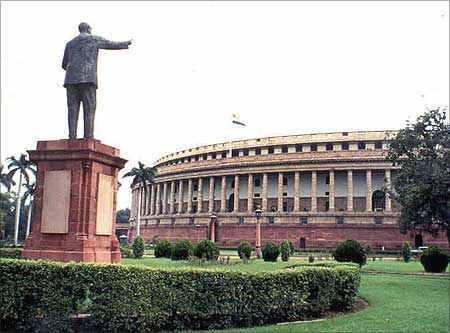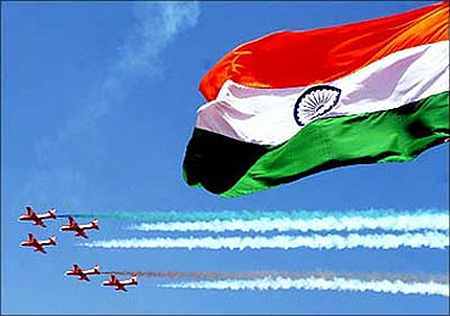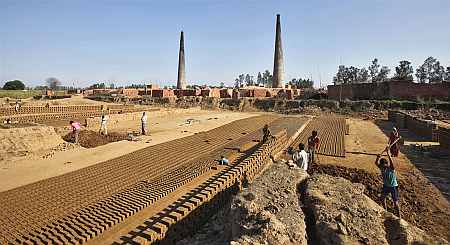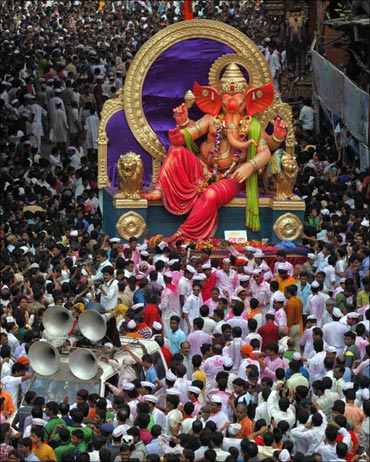
India's average annual economic growth during the seven-year period since the United Progressive Alliance, or UPA, formed its government at the Centre in 2004-05 is estimated at 8.5 per cent.
The growth figure for the eight-year period under the UPA will be a bit lower after incorporating India's 2011-12 performance, which is expected to be 6.9 per cent.
That should be a cause for concern because with the growth prospects for the current year looking not too bright, analysts have every reason to wonder if the UPA's good run with economic growth will fizzle out in the remaining two years of its second five-year tenure.
...

That is one perspective. The other way of looking at the India growth story under the UPA regime would be to assess how the various states in India performed in this period and whether any one of them has the ability to continue with its good run in the coming years.
An assessment of how different states performed in the seven-year period – from 2004-05 to 2010-11 – brings out interesting nuggets of information that seem to challenge the conventional wisdom on which states are growing fast and which are laggard.
For instance, which are the states that clocked double-digit growth in gross state domestic product during the seven-year period from 2004-05? Only six states will make that list.
...

On top of that list is Uttarakhand at 13.2 per cent, followed, as expected, by Bihar at 10.9 per cent, Maharashtra at 10.7 per cent, Tamil Nadu at 10.4 per cent, Haryana at 10.1 per cent and Gujarat at 10.08 per cent. The real story here is not about Uttarakhand and Bihar with their relatively low bases (they grew by 4.6 per cent and 4.9 per cent, respectively, in the previous ten years), but Maharashtra, Tamil Nadu and Haryana.
Many analysts had virtually written off Maharashtra and Tamil Nadu, and had begun extolling the virtues of fast-growing Gujarat and Karnataka. It would be interesting to compare these states on growth parameters.
Maharashtra's performance is significant. From an average annual growth of five per cent in the ten-year period from 1994-95, Maharashtra doubled its performance to 10.7 per cent in the seven years under the UPA regime.
...

Tamil Nadu's achievement is equally remarkable, with almost the same base performance in the 10 years prior to 2004-05 almost doubling to 10.4 per cent in the seven years of the UPA.
Haryana's growth story is perhaps the most remarkable. In the ten-year period from 1994-95, it grew annually by over 6.5 per cent. So there was no low-base effect for Haryana to bank on for its 10.1 per cent annual average growth in the seven years from 2004-05.
Its growth may be skewed and services sector-led (including construction), but Haryana will clearly emerge as the star performer among all the fast-growing states in India in the last few years.
Gujarat's story is well-known and shows what sustained growth-oriented policies can do to a state's economic fortunes.
There is a political angle to the states' growth pattern as well. Of the six states with double-digit growth, three are ruled by the Congress.
...

The remaining three -- Bihar, Tamil Nadu and Gujarat – are ruled by the Janata Dal-United, which is part of the Bharatiya Janata Party-led National Democratic Alliance, and the All India Anna Dravida Munnetra Kazhagam of J Jayalalithaa and the BJP.
The performance of Karnataka is certainly below its potential. It had a high base of over six per cent average annual growth in the 1994-2003 period, but it could raise the growth level to 8.7 per cent in the seven years from 2004-05.
Haryana's performance stands out even more when compared to that of Karnataka. Leaving Karnataka behind, it clocked double-digit growth in spite of having a high base growth of over six per cent in the previous ten-year period.
...

Odisha, too, has done well in this period, although it had the advantage of a low base of less than four per cent average annual growth in the ten-year period ended 2003-04. But to have clocked 9.5 per cent growth in the following seven years is testimony to Odisha's inherent economic potential and ability to grow fast.
No clear conclusions can be drawn from these data. What does emerge is that states with stable governments have a better chance to grow fast. Bihar, Haryana, Tamil Nadu, Odisha, Gujarat and Uttarakhand will fall in that category.
Maharashtra may be an exception, as the state has seen changes in leadership and yet it has recorded double-digit growth in the last seven years.
But is political stability the only factor that has led to sustained growth for these states? Or is there something more that helps in the emergence of what analysts would like to describe as the breakout states of India?
This column has been modified to incorporate corrected data